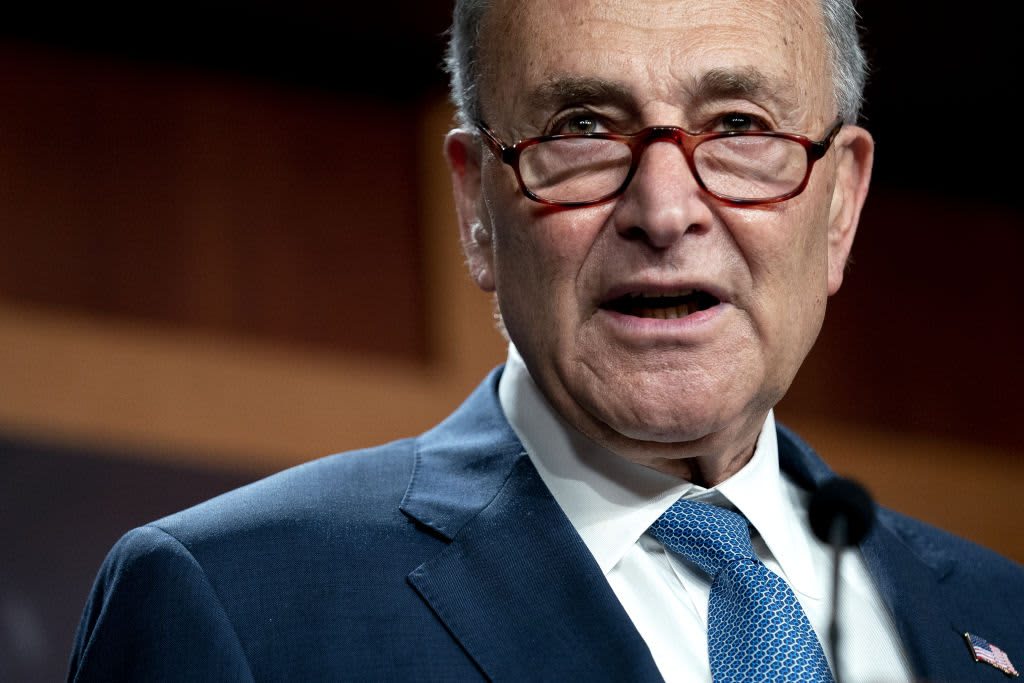WASHINGTON — Senate Democrats released the framework Wednesday for their $3.5 trillion budget resolution bill, which they hope to pass later this summer on a party-line vote.
The bill will contain nearly all of President Joe Biden’s American Families Plan bill, plus the addition of expanded Medicare coverage for hearing, vision and dental care.
How long each of the programs would last is still up in the air, however, as is how much money will be dedicated to each of the dozens of programs in the bill.
These are among the thorny questions that Democrats plan to hash out internally later this summer and fall.
For now, here are the topline projects the budget bill would fund:
- Create a national comprehensive paid family and medical leave program.
- Fund free universal preschool for all 3- and 4-year-olds.
- Fund free community college for all students, expand the total amount of Pell Grants, and increase the maximum individual award.
- Expand access to the summer EBT program, which helps some low-income families with children buy food outside the school year.
- Extend the $1.9 trillion Covid stimulus plan’s provision lowering health insurance premiums for those who buy coverage on their own.
- Extend the child tax credit expansion that was included in the Covid relief bill.
The bill also contains money for clean energy programs, many of which were cut from the bipartisan infrastructure deal during earlier negotiations with Republicans.
These include tax incentives for clean energy and electric vehicles, a Civilian Climate Corps program for young people and energy-efficient building weatherization and electrification projects.
In order to fund all the massive new investments, Democrats have announced plans to raise taxes on corporations and the wealthiest individuals. They also plan to fund enhanced enforcement by the IRS, in order to crack down on people who underpay or cheat on their taxes.
Another piece of the pay-for equation will be new methane reduction and polluter import fees, to raise revenue and accelerate emissions reductions.
Senators reached an agreement on the topline number of $3.5 trillion on Tuesday night, but details about the contents of the bill were not released until Wednesday.
Next steps
The next phase of the legislative process will be to fill in the budget framework with details, a process that takes place in the Senate Budget Committee.
The chairman of this committee is Sen. Bernie Sanders, I-Vt., who proposed his own $6 trillion budget resolution plan earlier this summer.
But Sanders’ $6 trillion plan was far too costly for centrist Democrats to support, and the current $3.5 trillion bill represents an effort to bridge these internal divisions.
The budget resolution also contains a key provision that Sanders has long championed but which was not included in Biden’s original American Families Plan: full Medicare coverage for vision, dental and hearing care.
“This is, in our view, a pivotal moment in American history,” Sanders told reporters Tuesday.
If ultimately signed into law, the bill would mark the biggest expansion of the social safety net in decades, along with an unprecedented effort to curb climate change and prepare the country for its effects.
It was not clear Wednesday when the budget resolution bill will receive its first vote in the Senate.
The timing of the bill is complicated by the fact that it is working its way through Congress hand-in-hand with another bill, a $1.2 trillion bipartisan infrastructure proposal that is still being drafted.
Senate Majority Leader Chuck Schumer, D-N.Y., wants to hold votes on both the budget resolution and the infrastructure bill before the Senate breaks for its planned August recess.
On Monday, Schumer told senators to be ready to remain in Washington for part of the upcoming recess in order to pass both measures.
Schumer’s timeline for the next few weeks is very ambitious, especially considering that neither of the two massive bills Democrats intend to pass have actually been written yet.
Several centrist Democrats have indicated that they want to pass the infrastructure bill before they cast a vote for the budget resolution bill.
But progressives, who strongly support the budget resolution, want the exact opposite: proof that their ambitious budget bill can pass before they agree to join centrist Democrats and Republicans in approving the watered-down infrastructure plan.
Democrats hold only a one-vote majority in the Senate, so both bills will need the support of every Democratic senator in order to pass.
— CNBC’s Emma Newburger contributed to this report.
